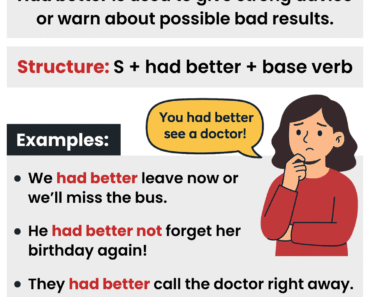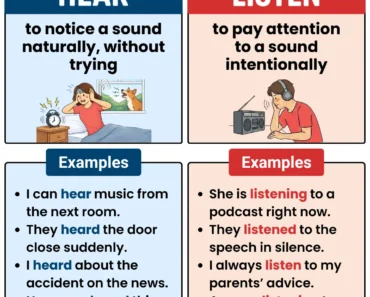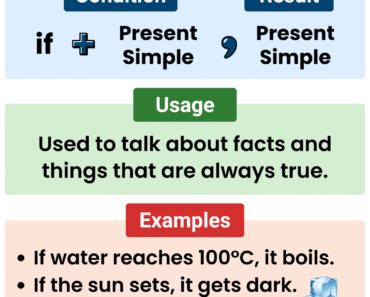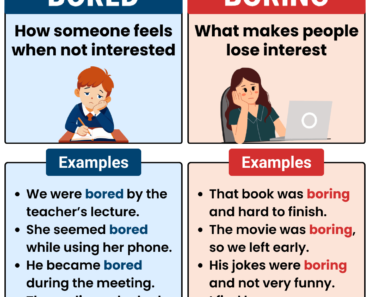
The third conditional is used to talk about unreal situations in the past, things that didn’t happen. It expresses imagined results, regrets, or missed opportunities based on different past actions. In this article, you’ll learn what the third conditional means, when to use it, how to form it, and see real-life examples to help you understand and use it correctly.
What Is the Third Conditional?
The third conditional is used to express imaginary situations in the past—things that did not happen. It helps us talk about unreal past conditions and their possible results. We often use it to express regret, criticism, or relief.
It’s called the “third” conditional because it deals with the least likely or completely impossible situations—past actions that are already over and cannot be changed.
Example:
-
If I had studied harder, I would have passed the exam.
(= But I didn’t study hard, and I didn’t pass.)
When to Use the Third Conditional
We use the third conditional when:
-
Talking About Unreal Past Events
If he had left earlier, he would have caught the bus. -
Expressing Regret or Past Mistakes
If I had apologized, she might have forgiven me. -
Analyzing or Blaming Past Decisions
If they had invested wisely, they would have saved money. -
Describing Missed Opportunities or Relief
If I had taken that road, I might have been stuck in traffic.
Third Conditional Structure
The third conditional follows this structure:
Form: If + Past Perfect, Would Have + Past Participle
- If she had known about the meeting, she would have come.
- If I had taken my umbrella, I wouldn’t have gotten wet.
You can also reverse the order:
- She would have come if she had known about the meeting.
- I wouldn’t have gotten wet if I had taken my umbrella.
Examples of Third Conditional Sentences
- If I had known about the traffic, I would have left earlier.
- If we had booked the tickets sooner, we would have gotten better seats.
- If she had studied harder, she would have passed the test.
- If it had rained, we would have stayed inside.
- If they had told me, I could have helped them.
- If I had set an alarm, I wouldn’t have missed the meeting.
- If you had arrived on time, we wouldn’t have been late.
- If he had listened to me, things would have turned out differently.
- If we had gone the other way, we might have avoided the traffic.
- If she had worn a coat, she wouldn’t have gotten cold.
- If I had seen the warning, I would have been more careful.
- If they had practiced more, they might have won the game.
- If you had told me the truth, I would have understood.
- If we had saved money, we could have taken a vacation.
- If the train hadn’t been delayed, we would have arrived on time.
- If I had checked the weather, I would have brought an umbrella.
- If they had followed the instructions, it would have worked.
- If you had called me, I could have explained everything.
- If she had left earlier, she wouldn’t have missed the bus.
- If I had taken that job, my life might have been very different.
Other Verbs Instead of “Would Have”
In the result clause, we often use “would have”, but other modal verbs like could have or might have are also common, depending on meaning.
-
Could have = possibility or ability
If I had seen him, I could have helped. -
Might have = uncertain possibility
If she had studied more, she might have passed. -
Should have = obligation or advice
If they had listened, they should have avoided trouble.







vocaberry.com
vocaberry.com